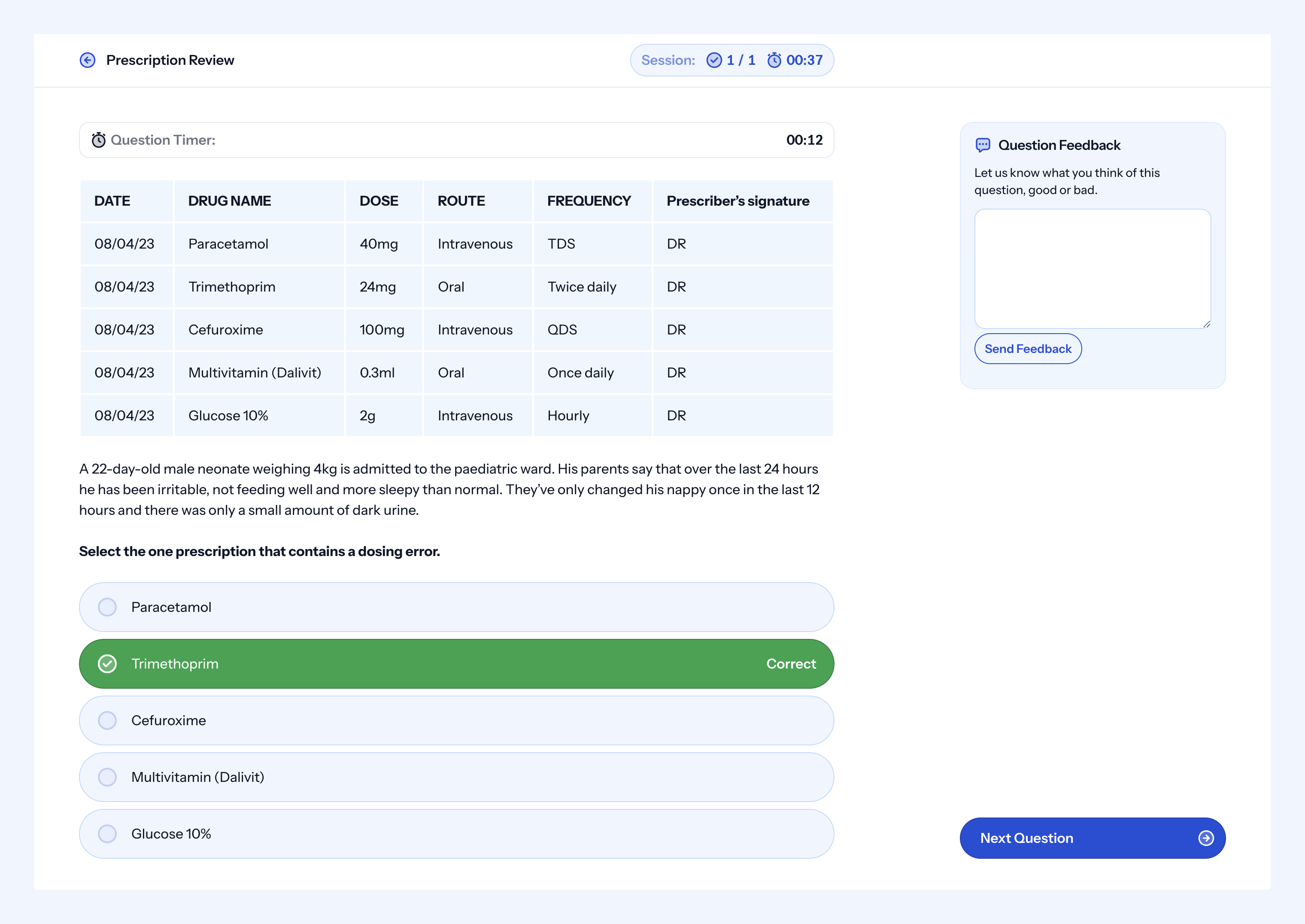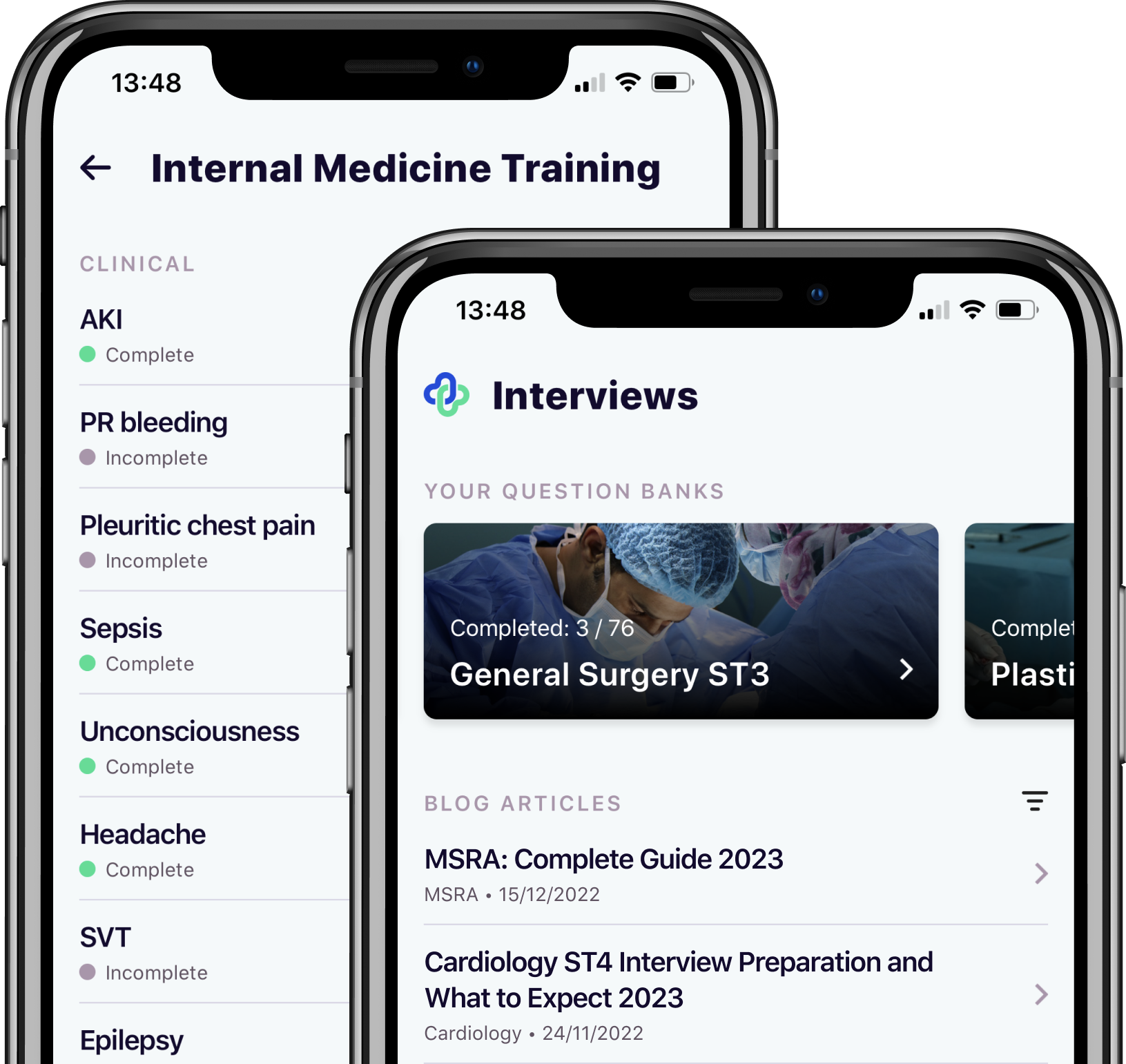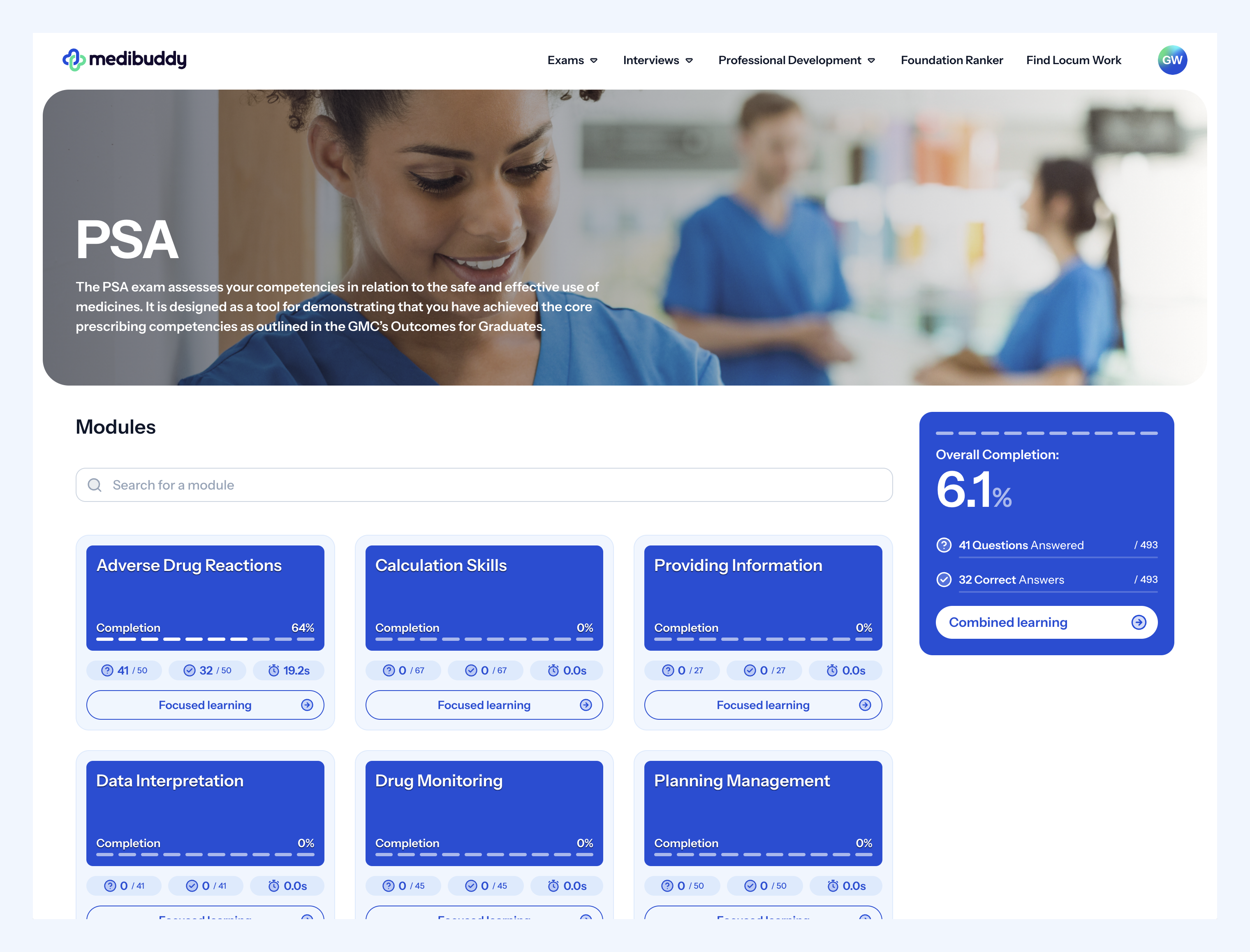
Prescribing Safety Assessment (PSA)
All final-year medical students and overseas graduates coming to the UK to work as Foundation Year 1 (FY1) doctors are required to take the Prescribing Safety Assessment (PSA).
The exam assesses your competencies in relation to the safe and effective use of medicines. It is designed as a tool for demonstrating that you have achieved the core prescribing competencies as outlined in the GMC’s Outcomes for Graduates.
As an FY1 doctor, prescribing is a fundamental part of your role, as you’ll write and review prescriptions daily. Therefore, you must demonstrate that you are competent to do so, by passing the PSA by the end of your first year of the Foundation Programme (FP).
What is the Prescribing Safety Assessment (PSA)?
Delivered jointly by the British Pharmacological Society and the MSC Assessment, the PSA is an online exam designed to assess your knowledge, skills and judgement of prescribing medicines within the context of the NHS. This includes writing, reviewing and amending prescriptions, calculating drug doses, and identifying adverse drug reactions and medication errors.
The PSA exam is structured into the following 8 sections:
- Prescribing
- Prescription Review
- Planning Management
- Providing Information about Medicines
- Calculation
- Adverse Drug Reactions
- Drug Monitoring
- Data Interpretation
The questions will cover ailments and drugs that you’re likely to encounter during FY1 across Medicine, Surgery, Elderly Care, Paediatrics, Psychiatry, Obstetrics & Gynaecology and General Practice. Below is an example question from our PSA question bank that you can expect to find in the exam.

How many questions are on the prescribing safety assessment?
The PSA exam is 2 hours long, with an extra 30 minutes available if you’re eligible for reasonable adjustments.
You’ll be given 60 questions to answer across the 8 areas with a total of 200 marks available. For each section, the number of questions and the available marks is given below:
| Exam section | Number of questions | Marks per question | Total marks available |
|---|---|---|---|
| Prescribing | 8 | 10 | 80 |
| Prescription Review | 8 | 4 | 32 |
| Planning Management | 8 | 2 | 16 |
| Providing Information about Medicines | 6 | 2 | 12 |
| Calculation | 8 | 2 | 16 |
| Adverse Drug Reactions | 8 | 2 | 16 |
| Drug Monitoring | 8 | 2 | 16 |
| Data Interpretation | 6 | 2 | 12 |
Our adaptive PSA question bank allows you to work through all of these topics. The dashboard shows your progress and highlights which sections you need to work on, giving you the opportunity to go into the exam fully prepared.
When can I take the PSA?
For final-year medical students, your medical school will arrange the PSA and set the examination date(s) within the agreed national schedule. You’ll be sent details of the exam, including how to activate and use your PSA account, directly from your medical school.
If you haven’t passed the PSA before starting your FY1 – for example, if you graduated outside of the UK – then you’ll be expected to undertake the exam with your foundation school.
In both cases, the first examination date will be in September, with two additional dates in the spring.
For those beginning FY1 in August 2024, the PSA dates are:
- Tuesday 10 September 2024
- Thursday 20 March 2025
- Thursday 1 May 2025
The PSA dates for FY1 August 2025 entry are:
- Tuesday 9 September 2025
- Thursday 26 March 2026
- Thursday 23 April 2026
How to pass the PSA exam
The PSA is a challenging and time pressured exam; therefore, preparation is key! Remember you must pass the PSA in order to progress to FY2.
Some key points to help you to prepare for the PSA:
Know what’s expected of you
The PSA is assessing that you have achieved the core competencies outlined in the GMC’s Outcomes for Graduates for ‘prescribing medicines safely’. Ensuring that you’re aware of what is included will undoubtedly go some way to helping you understand what will be expected of you in the exam.
Use PSA practice papers
Another key way of familiarising yourself with the PSA exam and what will be assessed is to complete practice tests. Once you are registered for an exam date, you’ll be given access to three PSA practice papers to facilitate your preparation for the exam. These are a really useful starting point. To ensure that you are fully prepared, you should utilise these alongside further practice tests, to give you plenty of opportunities to practise answering the types of questions you’ll encounter within the given time. Remember time is a key factor in the PSA which is what makes it such a difficult exam. Therefore, practising completing the exam within the time limit is great preparation!
Explore the BNF content
As part of the PSA exam, you’ll have access to the British National Formulary (BNF) content, which you’ll be expected to use to answer the questions. Alternatively, you can use a paper copy in the exam if you wish, but this must contain the most up-to-date prescribing advice, as this is what you’ll be assessed against. Whichever version you choose to use during the exam, it’s a good idea to practise using this as part of your PSA preparation, so you can quickly and easily find the information you need.
What happens if you fail the Prescribing Safety Assessment?
It is a national requirement for all doctors to pass the PSA before completion of FY1. You will not be awarded a Foundation Year 1 Certificate of Completion (F1CC) if you have not successfully completed the exam. If you fail the PSA, there will be two opportunities to re-sit the exam within the same academic year, and further support should be offered by your medical school or foundation school, so try not to worry if you don’t pass first time. Having said that, with the right preparation and enough time dedicated to practice questions, you absolutely can pass the PSA first time!
Is the PSA merging with the MLA?
The PSA is designed to ensure that all FY1 doctors understand the safe and effective use of medicines. However, following an independent review of the PSA in August 2023, the Medical Schools Council (MSC) and the British Pharmacological Society (BPS) are exploring how they can further the PSA’s impact.
One idea is to merge the PSA with the MLA to create the Medical and Prescribing Licensing Assessment (MPLA). If enforced, this enhanced exam would be required for all medical practices in the UK to improve the experience of patients, the public, and prescribers.
The MSC and BPS have welcomed the proposed changes, although it’s unknown if and when these will be enforced, as their implementation will require more long-term consideration. The current focus is to ensure that the Medical Licencing Assessment (MLA) is introduced effectively.

Take your subscriptions with you
Our mobile app allows you to access your interview and exam question banks wherever you are.



